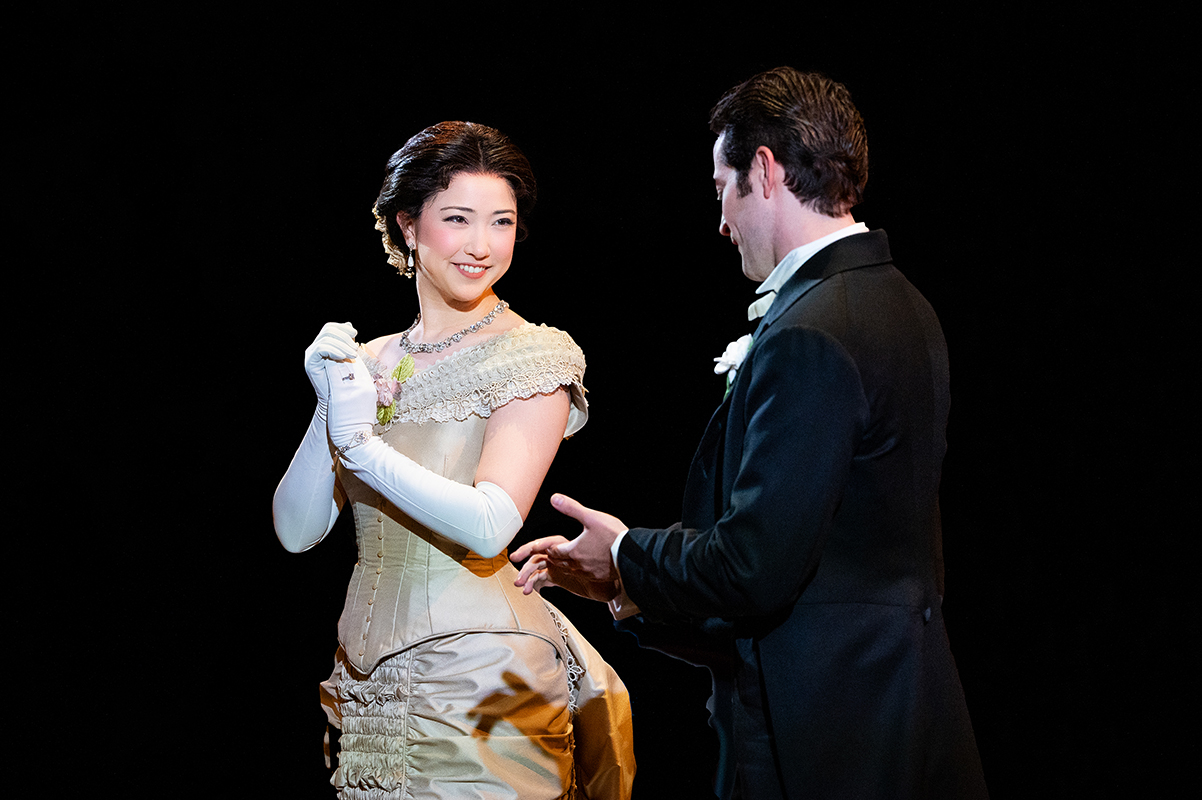Compulsive Obsession
'33 Variations' tracks the genius, obsession and near-madness of Beethoven -- and those enthralled by his work
When is an obsession a good thing? When it’s in the hands of a genius like Beethoven. Or, in the case of 33 Variations, when it’s in the hands of playwright Moises Kaufman.
From 1819 to 1823, Beethoven became so obsessed with one trivial waltz that he wrote 33 variations on it, creating what some call the most important collection of musical variations in the world. In 2003, Kaufman became so obsessed with this story, that he researched and traveled across the world to learn all he could, ultimately penning 33 Variations, having its world premiere at Arena Stage. Just as Beethoven was creating variations on an original work, Kaufman is creating a variation on a theme he has used before as well.
Kaufman may be most well-known for his play about the Matthew Shepard murder, The Laramie Project. In traveling to Laramie, Wyo., the experiences of Kaufman and members of the Tectonic Theater Project became just as important to the story as the actual murder. This style later helped inspire the structure for Doug Wright’s I Am My Own Wife, which Kaufman went on to direct.
 |
Kaufman uses another variation on this theme in 33 Variations, interweaving the story of Beethoven’s fixation with the Diabelli waltz with the fictional story of an ailing scholar trying to get to the root of Beethoven’s fascination. Fortunately, Kaufman keeps his variation fresh and alive with a compelling story filled with love, obsession, mortality, family and hope.
33 Variations is split into a chord of stories, three interlocking notes that play off each other to create a melody that resonates beautifully. Katherine Brandt (Mary Beth Peil) is a renowned Beethoven scholar about to leave for Bonn where she will finally be able to study the sketches that preceded Beethoven’s 33 Variations on Diabelli’s Waltz. Brandt is leaving against the wishes of her daughter, Clara (Laura Odeh), whose concern for her mother’s failing health pales next to Katherine’s need to unearth the spark behind Beethoven’s creation.
Once in Germany, Katherine befriends the curator, Gertie (Susan Kellermann), who recognizes the symptoms of amyotrophic lateral sclerosis — Lou Gehrig’s disease — which is ravaging Katherine’s body. Back in the States, Clara’s concern for her mother is putting her new relationship with her mother’s nurse, Mike (Greg Keller), at risk. Finally, traveling back in time, Beethoven (Graeme Malcolm) struggles with his health and his obsession with Diabelli’s waltz while fighting off the demands of his publisher (Don Amendolia) and his assistant (Erik Steele). The three stories circle each other until they collide in a crescendo of emotions.
Peil is simply fantastic, slowly losing control of her body as the disease takes its toll. Revealing vulnerability behind a strong and commanding persona is a slow and heart-breaking process that Peil handles masterfully. As her daughter, both desperate for approval and scared of the future, Odeh’s performance grows stronger as Clara finds her footing around her mother. By the end, both actresses are in perfect step with the other. Completing the mix, Kellermann’s performance as the no-nonsense Gertie is both funny and touching. Her heart melts more with each scene and Kellermann is perfect for the role.
The strength of the women in the show causes the men to pale in comparison, which is unfair given their own strong performances. Keller is perfectly lovable as nurse and boyfriend, a balancing force to Clara and Katherine’s angst-filled relationship. Malcolm fills the stage as the overwhelming Beethoven: slightly mad, yet a slave to his musical obsessions.
Accomplished pianist Diane Walsh provides the accompaniment for the variations that are performed throughout the play. In her hands, and augmented by the actors, the variations come to life and form another layer to Kaufman’s already rich stories.
| 33 Variations To Sept. 30 Arena Stage 1101 6th St. SW $58-$68 202-488-3300 www.arenastage.org |
A spectacle all its own, the staging and projection lighting for the performance is a theatrical feat. Derek McLane’s sets allow for seamless transitions between time periods — and ultimately a blending of the two. Pages and pages of Beethoven’s music fill racks across the stage, each dancing in the wind along with the action. However, it’s Jeff Sugg’s projection design that truly transforms the show. Casting images of everything from Beethoven’s original sketches to the completed music, the stage magically morphs in the blink of an eye.
Kaufman directs Arena Stage’s world premiere and proves again that he is a visionary writer and director. His ability to grasp a story and revision it in his own style is both transformative and enlightening. In Kaufman’s hands, both Beethoven and Katherine are worthy of obsession.
Support Metro Weekly’s Journalism
These are challenging times for news organizations. And yet it’s crucial we stay active and provide vital resources and information to both our local readers and the world. So won’t you please take a moment and consider supporting Metro Weekly with a membership? For as little as $5 a month, you can help ensure Metro Weekly magazine and MetroWeekly.com remain free, viable resources as we provide the best, most diverse, culturally-resonant LGBTQ coverage in both the D.C. region and around the world. Memberships come with exclusive perks and discounts, your own personal digital delivery of each week’s magazine (and an archive), access to our Member's Lounge when it launches this fall, and exclusive members-only items like Metro Weekly Membership Mugs and Tote Bags! Check out all our membership levels here and please join us today!






















